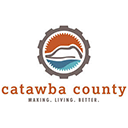Empowering Youth and Families
go.ncsu.edu/readext?777137
en Español / em Português
El inglés es el idioma de control de esta página. En la medida en que haya algún conflicto entre la traducción al inglés y la traducción, el inglés prevalece.
Al hacer clic en el enlace de traducción se activa un servicio de traducción gratuito para convertir la página al español. Al igual que con cualquier traducción por Internet, la conversión no es sensible al contexto y puede que no traduzca el texto en su significado original. NC State Extension no garantiza la exactitud del texto traducido. Por favor, tenga en cuenta que algunas aplicaciones y/o servicios pueden no funcionar como se espera cuando se traducen.
Português
Inglês é o idioma de controle desta página. Na medida que haja algum conflito entre o texto original em Inglês e a tradução, o Inglês prevalece.
Ao clicar no link de tradução, um serviço gratuito de tradução será ativado para converter a página para o Português. Como em qualquer tradução pela internet, a conversão não é sensivel ao contexto e pode não ocorrer a tradução para o significado orginal. O serviço de Extensão da Carolina do Norte (NC State Extension) não garante a exatidão do texto traduzido. Por favor, observe que algumas funções ou serviços podem não funcionar como esperado após a tradução.
English
English is the controlling language of this page. To the extent there is any conflict between the English text and the translation, English controls.
Clicking on the translation link activates a free translation service to convert the page to Spanish. As with any Internet translation, the conversion is not context-sensitive and may not translate the text to its original meaning. NC State Extension does not guarantee the accuracy of the translated text. Please note that some applications and/or services may not function as expected when translated.
Collapse ▲Empowering Youth and Families – Catawba County 4-H has recently graduated their first cohort of families from their new Empowering Youth and Families program and is accepting registration for the Spring group. Empowering Youth and Family (EYFP) brings together middle school-age youth and their caregiver for 10 weekly sessions with the program goal of reducing youth substance use through first strengthening the family unit. Stella Carpenter, a parent, who participated in the program summarized, “the program is largely about building strong family relationships and educating youth, so they will make wise choices.”
The spring session of Empowering Families will be offered on Thursdays, starting March 11, 2021, from 6–8 p.m. via Zoom. Each week participating families are provided with a pick-up family meal, with the cost of the meal covered by the Empowering Families grant. Afterward, the youth and their caregivers meet seperately through Zoom with other Catawba County families that are part of their group cohort. The youth session is from 6–7 p.m., followed by the adult session from 7–8 p.m. Weekly lessons range from parenting skills and making healthy choices to empowering families to lead community change. After the youth and adults meet separately for their session, they come back together and share about their at-home experiences, take-home activities, and family games that EYFP provides each week.
As well as educational information, families gain friendships and support from the families they partner with during the EFYP sessions. Carpenter said, “the program really helped me be a better parent. Sometimes it can be challenging to work through different situations and topics and EFYP afforded me the opportunity to connect with other parents who are parenting teens. I was able to get ideas from them and learn from their examples. Plus, we learned about the many resources that are available to use in the community. It was a plethora of help and information for parents.” The program is equally beneficial for the youth participants. Carpenter added, “my daughter learned a lot, too! The youth sessions taught her about things like self-image, drug use and abuse, social and media influences, choosing friends wisely, and much more. She also got the chance to connect with get to know other teens, as well.”
For the current school year, the program has been adapted to a virtual format for covid safety. Once in-person programs can fully resume, families will gather for a meal together, with the youth and adult groups meeting at the same time, with trained facilitators leading each session. There will also be a concluding family weekend retreat at a 4-H camp for Confluence. However, with covid limitations that concluding event is now offered virtually with special keynote speakers leading sessions for all North Carolina families that have been involved in that particular session of EFYP. Catawba County 4-H staff is exploring the option to offer an in-person session for summer that would be offered outside, at a park location.
Following the 10-week session, participating families work together to develop and implement a community action plan, with project funding provided by the EFYP grant. The Fall cohort is creating a video to illustrate healthy family relationships and how a strong family can be a tool to prevent youth substance use.
Empowering Youth and Families has been developed by Extension specialists at North Carolina State University and is being piloted in 14 counties throughout North Carolina and Tennessee. The program is based on the most up-to-date research on teens and families and also addresses the growing problem of opioid use. Dr. Autumn Guin, Empowering Families co-developer explained, “that Empowering Youth and Families Program grew out of a need to include the newest research in adverse childhood experiences and the protective factors that accompany that research in parenting programs. Many parenting programs were created more than 15 years ago and don’t account for the tremendous changes in society or the changes in youth development, family development, or parenting best practices.” In addition, the 2020 data from the NC Department of Health and Human Services, shows Catawba County is one of the top five North Carolina counties for opioid and narcotic overdoses, based on data provided from hospital emergency room visits. While the program content can be beneficial to anyone, this data shows the value of having the program offered in Catawba County.
N.C. Cooperative Extension in Catawba County is also seeking volunteers and organizations that would like to become community partners and to be trained as facilitators and/or support program implementation. Working with the EFYP program would also be an ideal project for a college intern seeking work experience.
For more information about Empowering Youth and Families or to register for the spring session, contact N.C. Cooperative Extension in Catawba County at 828-465-8240 and speak with 4-H staff, Donna Mull or Tina McGillvary, or email TMcgillvary@catawbacountync.gov. The program is open to any interested family with a student in 6-8th grade. Enrollment is limited to five families to keep the group’s size small and allow for personal connections and communication.
More information and blog posts from participating counties can be viewed at Opioid Prevention NC.





